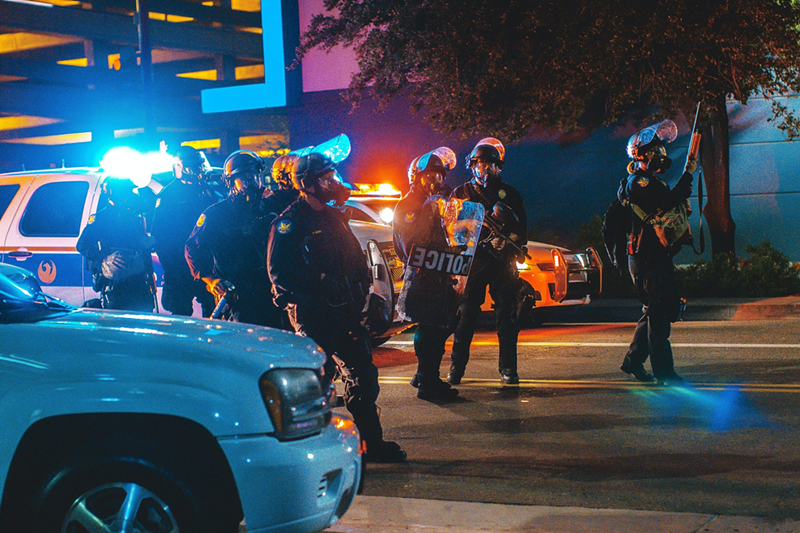A new bill introduced in the Ohio legislature targets strangulation by law enforcement, opening officers up to felony charges.
The bill comes as police actions in Ohio and elsewhere are being analyzed.
“If we remember the actual history of policing, we haven’t really come to terms with how it needs to change and how you can actually protect and serve the community,” one of the bill’s cosponsors, state Rep. Tavia Galonski, D-Akron, told the OCJ.
Galonski said the bill’s concept was inspired by bans in her home district on chokeholds, and a lack of state-level bans.
Under the new bill, law enforcement officers would be charged with a third-degree felony, strangulation by a law enforcement officer, which accuses an officer of causing “serious physical harm to a person by knowingly impeding the normal breathing or circulation of the blood of the person by applying pressure to the throat or neck, or by blocking the nose or mouth, of the person,” according to the bill language.
A third-degree felony can carry a sentence of nine months to three years.
With specific language about law enforcement knowingly restricting breathing, the bill touches on a topic brought to the national spotlight after the death of George Floyd.
Floyd died after Minnesota police officers restrained him, with video from the scene showing officer Derek Chauvin holding his knee to Floyd’s neck until the man was no longer responsive. Less than a month ago, Chauvin was found guilty of second-degree murder, third-degree murder and second-degree manslaughter in the death of Floyd. He has yet to be sentenced.
Galonski said the bill is not meant to target police and law enforcement who are doing their jobs without breaking or bending laws, and she doesn’t believe the measure serves Blacks, whites, Republicans or Democrats any differently.
“We all want our families to come home, whether they’re in law enforcement or just getting a bag of chips at the store,” Galonski said.
The bill is also sponsored by state Rep. Michele Lepore-Hagan, D-Youngstown. Currently, it has all-Democratic support, and will need Republican sponsorship to pass through the GOP-supermajority legislature.
This story was originally published by the Ohio Capital Journal and republished here with permission.






